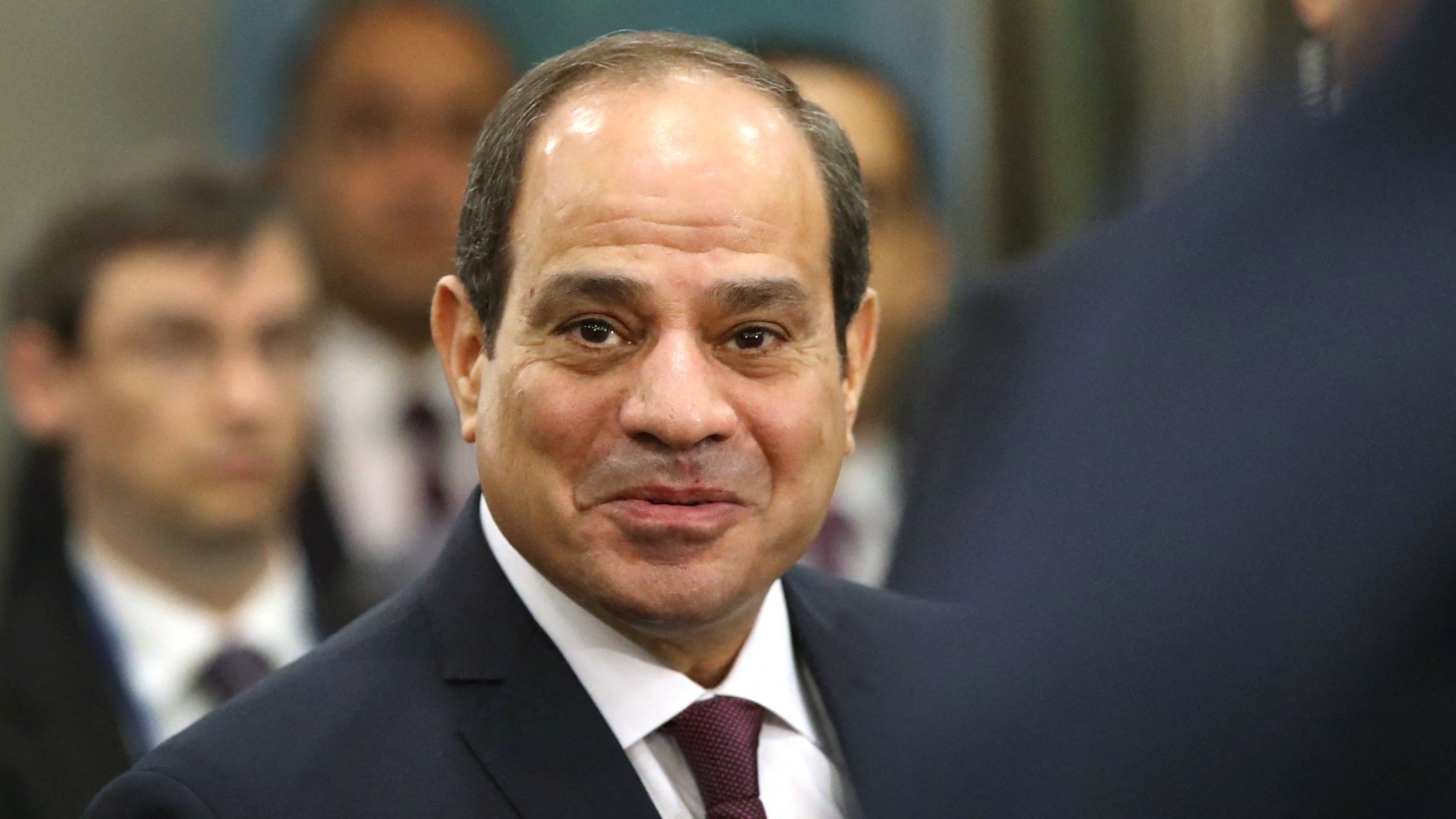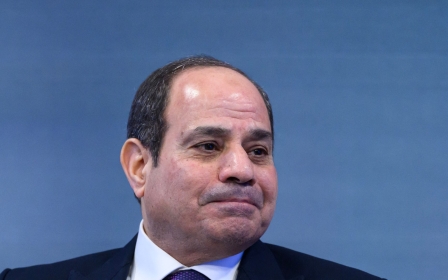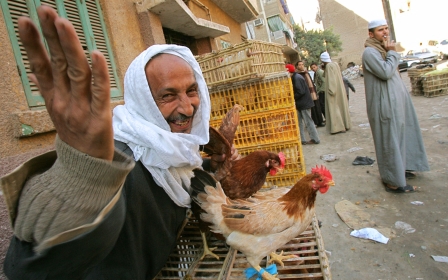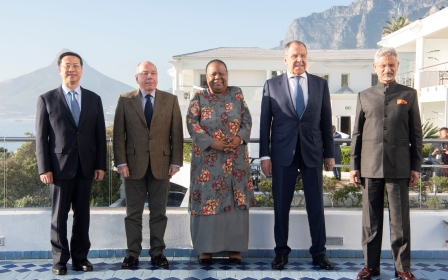Egypt: 10 years on, Sisi's coup continues squeezing country

Ten years ago, Abdel Fattah el-Sisi launched a coup against Egypt's first democratically elected president in history, removing Mohammed Morsi from power, suspending the constitution, and establishing himself as leader of the country.
Sisi said he was responding to the Egyptian people who had come out in droves in the months prior, protesting over fears that President Morsi was becoming authoritarian. Sisi promised political and economic stability in taking power.
He introduced a number of economic reforms, including slashing fuel subsidies and raising taxes in an effort to ease unemployment. He also initiated several infrastructure projects, including the expansion of the Suez Canal, and worked to increase tourism in the country.
At the same time, Sisi went on to jail tens of thousands of political opponents, journalists, and rights activists, and imposed a national emergency to usher in his rule - Sisi denies holding political prisoners.
Despite the crackdown on human rights in the country, including criminalising protests, arbitrary detentions, and clamping down on political parties, Egyptian society endured under the promise of economic stability.
Stay informed with MEE's newsletters
Sign up to get the latest alerts, insights and analysis, starting with Turkey Unpacked
But experts and activists say that the economic meltdown in the country over the past several years coupled with increased repression is leading to a new wave of unrest in the country that the president is unequipped to deal with.
"Sisi came under the social contract with the Egyptian people. You will have no public life, there will be no political life, no freedom of expression. But in return, you will have safety and stability," Amr El-Afifi, research manager at The Freedom Initiative, told Middle East Eye.
"A few years of that was fine, but when people started hurting in their bank accounts, and had to start pulling from their savings, the economic and political challenges were once again merged into one for the larger Egyptian society."
Now, the Egyptian government has made efforts to reduce its prison population. In 2022, Cairo released 895 political prisoners, according to Amnesty International. However, Sisi's apparent attemps to ease the crackdown on civil society have come amid further arrests and targeting of critics, according to Elizabeth Rghebi, the Mena advocacy director for Amnesty International USA.
"Over the last 10 years, the Egyptian authorities have continued to crush all forms of peaceful dissent and stifle civic space," Rghebi said.
"Thousands of human rights defenders, journalists, protesters and other actual or perceived government critics and dissidents remain arbitrarily detained for exercising their human rights."
Egypt's 'coercive apparatus'
Two years prior to the coup, in 2011, Egypt witnessed massive protests leading to the toppling of Hosni Mubarak, who had led the country for the past thirty years.
Over the next year, the country witnessed its first democratically elected president, Mohammed Morsi, take office, a pivotal moment in the larger mass protest movements taking place all over the region that came to be known as the Arab Spring.
But democracy in the country was short-lived after Sisi - then the country's defence minister - backed nationwide protests against Morsi that blamed the former president for the country's deteriorating economic situation.
On 3 July 2013 Morsi was deposed by Sisi in a military coup. In response, Morsi's supporters and critics of the coup staged mass protests demanding he be reinstated and a return to democracy.
The largest of these demonstrations was held in Rabaa al-Adaweya Square in the northern Cairo district of Nasr City. Some 85,000 protesters camped there for six weeks until they were violently dispersed, in what became known as the Rabaa massacre. An estimated 1,000 people were killed by security forces.
"The coup and then Sisi calling for people to give him a mandate to get rid of terrorism, and then later Rabaa, was the breath of life that this coercive apparatus needed to come back and be front and centre in Egyptian life," said Afifi.
"And we see that 10 years later in terms of the economy being controlled by the military and by different security apparatuses, political life being controlled by the military and different security apparatuses."
Sherif Mansour, the Middle East and North Africa programme manager at the Committee to Protect Journalists (CPJ), was still working at the organisation at the time of Sisi's coup.
Mansour told MEE that he started at the CPJ in 2012, and noted that at the time there had been no jailing of journalists in the country. And after Sisi's coup, he witnessed a massive wave of jailing journalists and attacking press freedom.
"In many ways since 2013, Egypt has been one of the worst jailers of journalists," Sherif said.
In 2018, Egypt also introduced a new cybercrime law that allows authorities to block websites that are considered a threat to "national security" or to the "national economy", which raised concerns from rights group that Sisi's government was restricting access to information. Egypt has routinely blocked websites over the years.
According to the Association for Freedom of Thought and Expression, Egypt has blocked access to nearly 200 websites.
Egypt also ranked as the country with the third-highest number of exectutions in 2020 with more than 100 executions carried out.
"Over the last 10 years, the state has only gotten more autocratic," said Afifi.
Economic woes
In the initial years after the coup, Egypt's economy under Sisi turned to foreign financing that was used to fund infrastructure megaprojects, and looked to position itself as a "global investment destination".
However, in 2023, the country is in dire financial straits.
"The crisis has a history that stretches back years. Since President Sisi took power in 2013, the government has pursued an economic model focused on government-run infrastructure projects funded by debt financing, both foreign and domestic, and led by military-owned companies," a recent report by the International Crisis Group stated.
'It's going to get increasingly more expensive for Sisi to stay in power'
- Amr El-Afifi, research manager at The Freedom Initiative
"This arrangement reflected Sisi’s statist world view, secured for him the army’s political loyalty and supported a modest economic expansion. It failed, however, to reduce unemployment, while exacerbating poverty and external imbalances."
Last year, the International Monetary Fund agreed to provide Cairo with a $3bn loan, but the Egyptian news outlet reported that Egypt was initially looking for $12bn. The agreement is one of several that Egypt has signed with the IMF, including a $12bn agreement in 2016.
The country's foreign debt has increased from $40bn in 2015 to more than $160bn at the end of 2022.
"It's clear the country has become much more in debt, and much less competitive. Not just because it became worse in terms of press freedom and human rights, but it's about mismanagement," said Mansour.
Sisi sparked new hopes into Egyptian society with the announcement of a new national political dialogue in 2022, which was meant to bring in voices from across the region and create more political involvement.
People began engaging in the political sphere more, and former member of parliament Ahmed Tantawy announced he would run for president in the 2024 elections.
But the prospects of political mobility crashed soon after, with Tantawy's family members being jailed earlier this year which Human Rights Watch said was done seemingly because of their familial connections with the Egyptian politician.
While the national dialogue is continuing to move forward, Sisi has banned the Muslim Brotherhood party and stopped much of the secular opposition from participating. The failure to bring real dialogue is "a testament to the fact that Sisi does not know how to do politics", according to Afifi.
"It's going to get increasingly more expensive for Sisi to stay in power. And it's also getting a lot worse for people," said Afifi.
"And people who were less reluctant to fight for their political rights are a lot more likely to start speaking out about their economic rights and like how economically difficult it's been."
Middle East Eye delivers independent and unrivalled coverage and analysis of the Middle East, North Africa and beyond. To learn more about republishing this content and the associated fees, please fill out this form. More about MEE can be found here.





